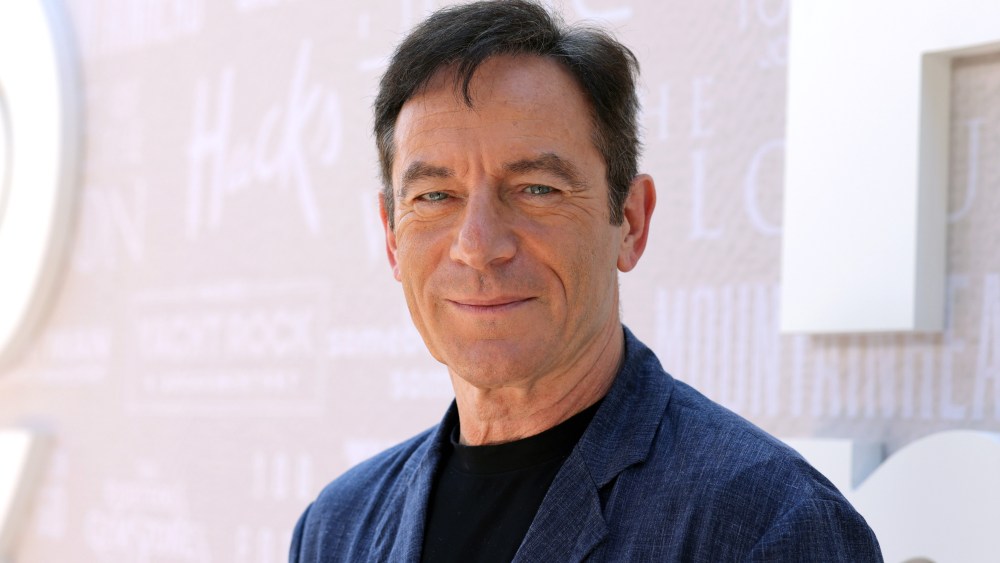Jason Isaacs, known for his role in ‘White Lotus,’ delivered a powerful message at the Creative Coalition’s Humanitarian Awards Luncheon. He cautioned against the weaponization of hate, emphasizing the importance of arts and humanitarian work. This article delves into his speech, along with the insights shared by fellow honorees, highlighting their dedication to service and advocacy for the arts.
The event, held ahead of the 77th Primetime Emmy Awards, brought together creatives who are using their platforms to make a difference. Isaacs’ warning about hate resonated deeply with the Coalition’s mission, setting the tone for an afternoon of reflection and inspiration.
From personal anecdotes to calls for empathy, the honorees shared their unique perspectives on caregiving and the arts. Their stories underscore the significance of using one’s privilege to uplift others and foster positive change. This article highlights the key moments and takeaways from the Humanitarian Awards Luncheon, celebrating the honorees’ commitment to making the world a better place.
Jason Isaacs on the Weaponization of Hate
Jason Isaacs’ acceptance speech centered on the dangers of weaponizing hate, a theme that resonated throughout the event. He credited his mother with instilling in him a sense of responsibility, noting that with great privilege comes great responsibility. This sentiment underscored his commitment to using his platform for good.
The actor shared a story about volunteering with a teenage filmmaker in South Central Los Angeles, illustrating how the arts can provide an escape and a sense of purpose for those facing adversity. “I have books and I have the arts,” Isaacs recalled the young girl saying, “And I know there is a way out of this community coming.”
Other Honorees and Their Perspectives
Alongside Isaacs, other honorees included his ‘White Lotus’ co-stars Jon Gries and Natasha Rothwell, as well as John Turturro, Brianne Howey, Skye P. Marshall, and Judith Light. Each shared their own stories and perspectives on caregiving and the importance of the arts.
John Turturro reflected on his experiences caring for his late brother, Ralph, who faced mental and physical challenges. Turturro emphasized the value of perseverance, noting that his brother taught him the importance of facing extreme difficulty with resilience. He ended his speech with a touching story of how he would imitate Arnold Schwarzenegger for his brother during chemotherapy treatments.
Skye P. Marshall and Natasha Rothwell on Role Models and Service
Skye P. Marshall spoke about the importance of role models in her life, paying tribute to her mother. She recounted her family’s experience with homelessness and how her mother instilled in her the belief that she was entitled to equality. Marshall encouraged others to “stand in power” and use that power to uplift each other.
Natasha Rothwell emphasized her commitment to using her platform for service, stating that talent is a gift, but service is a choice. She highlighted her dedication to centering marginalized voices and supporting arts education. Rothwell also shared her own experiences with anxiety, depression, and ADHD, aiming to reduce stigma and promote mental health awareness.
Brianne Howey, Jon Gries, and Judith Light on Mental Health and Empathy
Brianne Howey, a longtime advocate for mental health awareness, discussed the importance of caring for one’s mental health as a daily practice. She praised the role of arts and entertainment in normalizing conversations around mental health, drawing from her experiences on ‘Ginny & Georgia.’ Her message emphasized the need for ongoing effort and self-care.
Jon Gries emphasized the importance of empathy and giving back, especially in the face of budget cuts for worthy causes. Judith Light acknowledged the challenges facing the world but expressed optimism through the Creative Coalition, highlighting its role as a beacon of hope. She emphasized the importance of unity and collective action in addressing current issues.
The Creative Coalition’s Mission
The Creative Coalition’s Humanitarian Awards Luncheon underscored the organization’s commitment to protecting and supporting the arts. Through education and advocacy for programs like the NEA, the Coalition seeks to empower creatives and promote positive change.
The event served as a reminder of the power of the arts to inspire, heal, and unite. By bringing together artists and advocates, the Creative Coalition continues to champion the importance of creativity in addressing societal challenges. The honorees’ speeches reflected this mission, highlighting the transformative potential of the arts and the importance of using one’s platform for service.
Conclusion: Key Takeaways from the Humanitarian Awards Luncheon
The Creative Coalition’s Humanitarian Awards Luncheon highlighted the importance of using one’s platform for service and advocacy. Jason Isaacs’ warning against the weaponization of hate set the tone for an afternoon of reflection and inspiration, underscoring the need for empathy and collective action.
The honorees’ speeches, filled with personal anecdotes and calls for change, served as a reminder of the transformative power of the arts. From mental health awareness to support for marginalized voices, the honorees demonstrated a commitment to making the world a better place.
As the event concluded, the message was clear: the arts play a vital role in fostering positive change, and it is our collective responsibility to support and protect them. The Humanitarian Awards Luncheon served as a powerful reminder of this mission, inspiring attendees to continue using their voices and talents to make a difference.

Leave a Reply